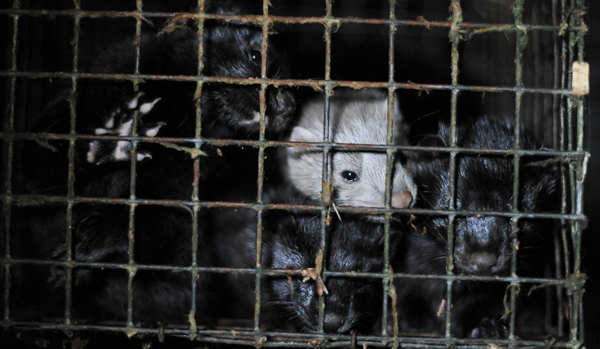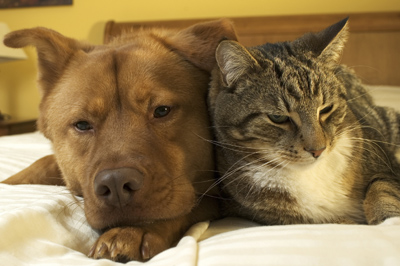Tuesday July 27, 2021 | ABBOTSFORD, BC
Island Social Trends | Notes compiled by Jalen Codrington and Mary P Brooke, Editor
British Columbia has placed a moratorium on new mink farms and capped existing farms at their current numbers after two more of the animals tested positive for SARS-CoV-2 (the virus that causes COVID-19).
Two more mink recently tested positive for SARS-CoV-2, as discovered through a wildlife surveillance project led by the Ministry of Forests, Lands, Natural Resource Operations and Rural Development, in co-operation with the One Health Working Group.
Another five of the animals have initially tested positive, with final results pending. The outbreak among the mammals in captivity was recorded on a Fraser Valley farm currently under quarantine after it had mink test positive in May 2021.
Mink are naturally aggressive animals and must be handled carefully. They bite readily and adults must be handled with thick leather mitts.
Mink are semi-aquatic, accustomed to roaming freely over vast landscapes; on farms, they are crammed into wire-mesh cages, where they become stressed and aggressive, possibly increasing the likelihood of COVID transmission.
Project to assess transmission:
The new provincial health order comes after two mink tested positive for the virus on a farm that’s been under quarantine and samples from five more of the animals from the same farm tested positive at BC’s animal health lab with final results pending from a national lab in Winnipeg.
It says the mink that tested positive were identified through a provincial surveillance project that aims to assess the potential for virus transmission to “free-ranging” animals.
No new farms, existing farms must report:
Effective immediately, the BC government has placed a moratorium on all new mink farming in the province. Each existing farm — all of which are located in the Fraser Valley — is required to report the total number of mink to the provincial health officer and the medical health officer in their health authority, and cap their current number of mink.
The BC SPCA is calling for a moratorium on mink farming in British Columbia through an immediate suspension of all mink farm licenses.
Policy review of fur farms:
“The Province is conducting a review of its policies and regulations with respect to fur farms, while ensuring the recommended mitigation measures are in place and enforced to protect both public and animal health,” said the Ministry of Agriculture, Food and Fisheries on Monday.
Mink farming is active in most Canadian provinces, with nine farms in BC. Three of them have been under quarantine since December 2020. The farm responsible for the most recent outbreak has not been identified by the province.
Minks and COVID transmission:
While COVID has been detected in many animals exposed to infected humans — domestic dogs, cats, ferrets, lions, tigers, and even gorillas, mink are the animals most frequently infected by the virus. According to the World Organisation for Animal Health, to date, COVID mink infections have been reported in 12 countries (Canada, Denmark, France, Greece, Italy, Latvia, Lithuania, Netherlands, Poland, Spain, Sweden, and the USA). Animals found with COVID-19 infection so far are listed as: cats, dogs, lions, pumas, mink, tigers, ferrets, gorillas, and otters.

On the mink farms, the potential for exacerbation of transmission is heightened: “Thousands of mink are kept in small wire cages next to each other on these farms. Under these conditions, outbreaks of COVID-19 can spread like wildfire and acquire new mutations that may change the severity of disease, treatment or susceptible host,” says Dr. Jan Hajek, an infectious diseases doctor at Vancouver General Hospital.
The European Centre for Disease Prevention and Control has warned in the past that the virus “can accumulate mutations more quickly in minks and spread back into the human population”.
After reporting mink infections in 2020, the Netherlands was one of the countries that went forward with a total ban on mink farming. In the same year, Denmark made the extreme decision to cull the country’s entire 17 million mink population in an effort to curb virus transmissions. A current bipartisan house proposal in the U.S. is exploring the option of a mink farm ban.
Scientists, vets, epidemiologists, and animal advocacy groups continue to call for an end to mink farming.
COVID infection from animals:
Currently there is no political agreement of how SARS-CoV-2 itself evolved, but it’s generally agreed that the virus likely evolved from bats.
The Centers for Disease Control and Prevention (CDC) in the USA on their Animals and COVID page says the COVID virus can spread from people to animals in some situations, especially during close contact.
The CDC, however, says that more studies are needed to understand if and how animals could be affected by COVID-19.
The Canadian Food Inspection Agency said on June 2, 2021 in an update on a case of supposed human-to-pet in Canada (first detected in October 2020): “As the studies continue to unfold, we expect to have additional positive cases detected in COVID-19 positive households.”
People with suspected or confirmed COVID-19 should avoid contact with animals, including pets, livestock, and wildlife, says the CDC.
===== RELATED:
BC SPCA calls for immediate moratorium on mink farming (December 16, 2020)




